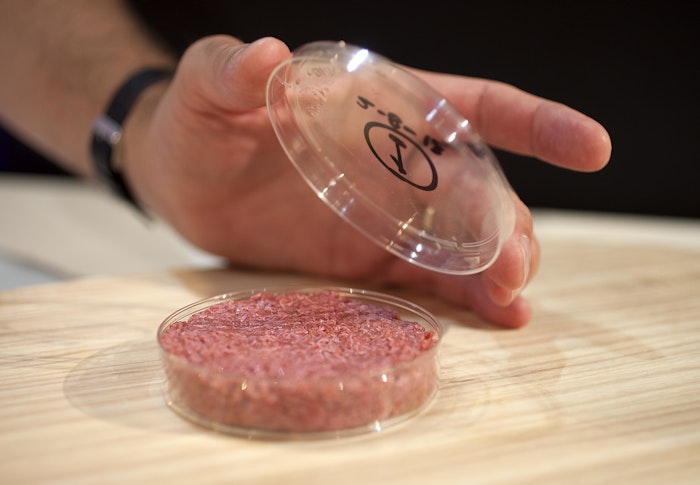http://www.memphismeats.com/blog/
It looks like any ordinary meatball,
right?? Well, if I said it took years of research and was made in a lab, would
you believe me?? The meatball above was made from the founders of Memphis
Meats, a biotechnology company that hopes to revolutionize how we obtain our
meat.
Memphis Meats is the brain child of
Nicholas Genovese, a stem cell biologist (like me!), Will Clem, a tissue
engineer, and Uma Valeti, a cardiologist. The trio devised a method to isolate
animal cells (from cow, pig and/or chicken cells), proliferate the cells in cell
culture dishes and supplied the cultures with the appropriate growth medium,
and then voilà, meatball! Wow!
Huh?!
You might ask, can I go to my local
grocery store, buy some meat, and then grow it in a petri dish? Probably not
(FYI: The only thing you might grow would be mold!) In order for this to be
possible, the researchers needed to isolate a cell type that would readily
divide into a muscle cell. Most animal cells are mature, define cell
populations, and there is very little cell division, so any normal muscle cell
wouldn't do. On the other end of the spectrum, there are adult stem
cells, which can proliferate and can become a predestined cell type (like
adult neural stem cell can become a fully functioning neuron depending on the appropriate
factors given).
Another factor that had to be taken
into consideration was that most muscle cell grows in linear fashion. The
researchers needed to provided their cultured meat cells with a synthetic
scaffold of sorts made out of collagen (normally found in meat), in which the
muscles cells could be grown upon.
Lastly, cells need to have growth
medium that contains nutrients. My mom used to ask me, "What do cell
eat??" Well, we normally "feed" cells with two main
ingredients: one has all the basic nutritional elements and vitamins; the
second looks a little like chicken or beef stock.
So back to the meatball. In this case,
a donor adult muscle cell was extracted from cow and then cultured with growth
medium upon a collagen scaffold. Yum!
Why cultured meat? Well live stock is
expensive. They have a very large carbon foot print and in the near future it
will be difficult to sustain this structure. So cultured meat is a plus here.
Also, in this process, no animal was harmed in the making of this meatball, so
this vegan meat, right?
There are several companies that are trying to bring cultured meat to the masses. Will I be trying this soon? I don't
think so. For all intentional purposes, this is meat; however, for me, it's hard
to think that I'm going to be eating from this type of dish!

